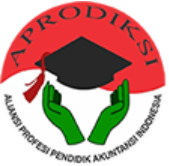PROFIL LULUSAN (TRACER STUDY) PROGRAM STUDI PENDIDIKAN EKONOMI YANG BEKERJA DI DUNIA USAHA DAN INDUSTRI 2000 – 2005
DOI:
https://doi.org/10.21831/jpai.v6i1.1796Abstract
The aim of this research is to know the profile of grad of Economic Education Program FKIP UNS evaluated from the aspect of stakeholder.
Population in this research is all consumer of grad of Economic Education Program FKIP UNS from year grad 2000 up to 2005. Data collected represent consisted of the data having the character of quantitative and qualitative. All data obtained can express the profile of grad of Economic Education Program [of] FKIP UNS especially related to area of their performance and work. Source of data in this research is consumer of grad of Economic Education Program FKIP UNS 2000 up to 2005.
From case result of study of year detection 2003 to three sector becoming consumer of grad of Economic Education Program FKIP UNS in the reality obtained the following result: (1) 70% from grad put hand to the education sector, (2) 15% from grad put hand to the sector business, (3) 15% from grad put hand to the sector banking. Ability which is assuming less mastered the collegiate, that is (1) 28,5% English And Computer, (2) 28,5% English And Leadership, (3) 28,5% Computer And Leadership, (4) 14,5% English
While from result of detection study to seven institution of consumer of grad of Economic Education Program FKIP UNS in the reality all overall head express that collegiate performance is goodness
Downloads
How to Cite
Issue
Section
License
Authors who publish with Jurnal Pendidikan Akuntansi Indonesia journal agree to the following terms:
- Authors retain copyright and grant the Jurnal Pendidikan Akuntansi Indonesia journal right of first publication with the work simultaneously licensed under Creative Commons Attribution License (CC BY 4.0) that allows others to share the work with an acknowledgment of the work's authorship and initial publication in this journal.
- Authors can enter into separate, additional contractual arrangements for the non-exclusive distribution of the published version of the work (e.g., post it to an institutional repository or edit it in a book), with an acknowledgment of its initial publication in this journal.
- Authors are permitted and encouraged to post their work online (e.g., in institutional repositories or on their website) before and during the submission process, as it can lead to productive exchanges, as well as earlier and greater citation of published work.






